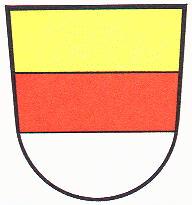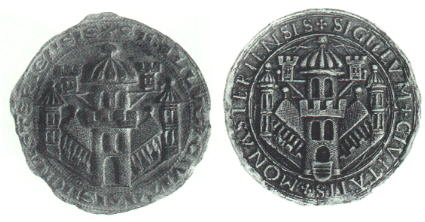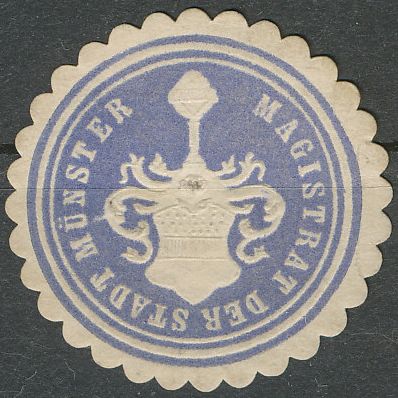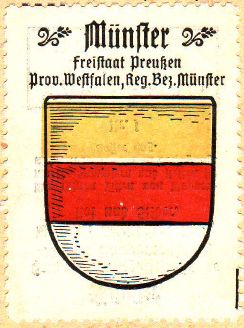Münster (Westfalen): Difference between revisions
Knorrepoes (talk | contribs) m (Text replace - "|width="15%"|50 px|right |}" to "|width="15%"|50 px|right |}<seo title="Wappen, Gemeindewappen" />") |
Knorrepoes (talk | contribs) No edit summary |
||
| Line 27: | Line 27: | ||
[[Literature]] : Stadler, K. : Deutsche Wappen - Bundesrepublik Deutschland. Angelsachsen Verlag, 1964-1971, 8 volumes; Veddeler, 1991. | [[Literature]] : Stadler, K. : Deutsche Wappen - Bundesrepublik Deutschland. Angelsachsen Verlag, 1964-1971, 8 volumes; Veddeler, 1991. | ||
[[Category:German Municipalities M]] | [[Category:German Municipalities M|Munster]] | ||
[[Category:Nordrhein-Westfalen]] | [[Category:Nordrhein-Westfalen|Munster]] | ||
[[Category:Münster]] | [[Category:Münster|Munster]] | ||
Revision as of 17:16, 15 August 2013
| Heraldry of the World Civic heraldry of Germany - Deutsche Wappen (Gemeindewappen/Kreiswappen) |
MÜNSTER
State : Nordrhein-Westfalen
Urban District (Stadtkreis) : Münster
Additions : 1975 Amt Sankt Mauritz, Amt Roxel (partly), Amt Wolbeck (partly), Albachten, Amelsbüren, Angelmodde, Handorf, Hiltrup, Nienberge, Roxel, St. Mauritz, Sprakel, Wolbeck
Origin/meaning
Münster became a city in the early 13th century. The first seal shows a gate with the patron saint of the city, St. Paul.
The arms do not appear in official seals before 1535, although in a seal of the Antonius hospital from 1368 it is shown. The origin of the colours is not known. In the 15th century two griffins were used as supporters, later two lions were used. At present there are no supporters used.
| The seals of Münster from the 13th century and from 1535. | |
| Seal of Münster from around 1900. |
The arms in the Kaffee Hag albums +/- 1925 |
Literature : Stadler, K. : Deutsche Wappen - Bundesrepublik Deutschland. Angelsachsen Verlag, 1964-1971, 8 volumes; Veddeler, 1991.




